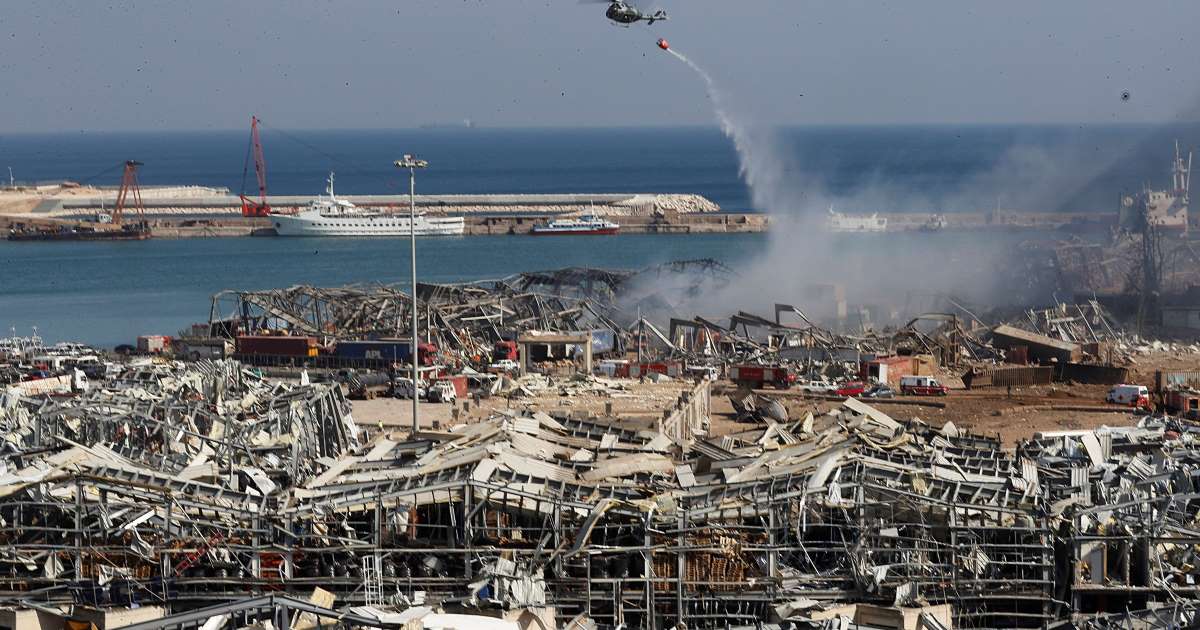© AP Photo / Hussein Malla
The explosion in Beirut
The background to the massive explosion that claimed at least 100 lives is beginning to emerge.
The 2,750-ton ammonium nitrate mountain that caused the explosion in Beirut on Tuesday came from a ship owned by a Russian businessman, a Russian Mediazonablog writes. The Lebanese LBCI television channel and the ship’s crew have been used as sources of information.
Lebanese Prime Minister Hassan Diab announced Tuesday that ammonium nitrate, stored for years in a storage building in the Beirut port area, exploded and killed at least 100 people and wreaked havoc on the city. The prime minister did not know the cause of the fire and the subsequent explosion.
Mediazona mentions that, according to preliminary data, the chain of events began with welding work that first ignited some of the fireworks stored in the warehouse. This, in turn, eventually led to the explosion of an industrial chemical normally used as a fertilizer. AP news agency the data support the claim.
The dangerous fertilizer lay in stock for six years
Last night, Lebanese media reported new information about the origin of the explosive, based on official sources. In 2014, the country’s authorities seized 2,750 tonnes of ammonium nitrate from a Moldovan vessel called the Rhosus. The ship is owned by Igor Grechusk, a Russian citizen living in Cyprus.
The ship was en route from Georgia to Mozambique in 2013, but the voyage was interrupted due to a shipwreck in Beirut. Shortly thereafter, Grechusk apparently filed for bankruptcy and abandoned the ship and its crew to the port.
The crew was stuck for months before the ammonium nitrate in the cargo could be unloaded from the ship. From then on, the substance hung in the port warehouse.
The crew could not get out of the ship
ShipArrested, which publishes cargo fleet-related news, wrote in October 2015 about the Rhosus. According to them, the ship’s crew had to stay on board due to entry restrictions, and not even requests forwarded through diplomatic routes helped the situation.
However, local lawyers were allowed to pull off the right strings, and the crew finally got home.
In connection with the report, lawyers mentioned that ammonium nitrate was transferred from the ship to a port depot where it “is still awaiting auction and / or proper disposal”.
Next to shipping Marine TrafficThe site has marked its last sighting of the Rhosus in 2014, when it appeared to be in the port of Beirut.
